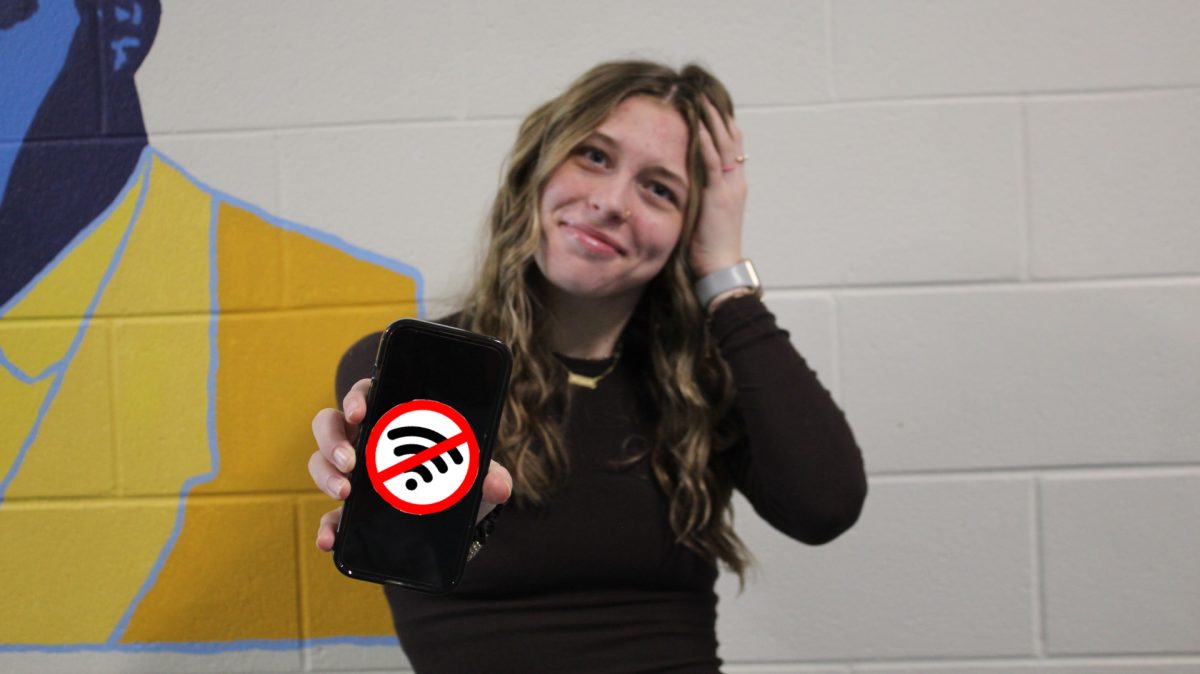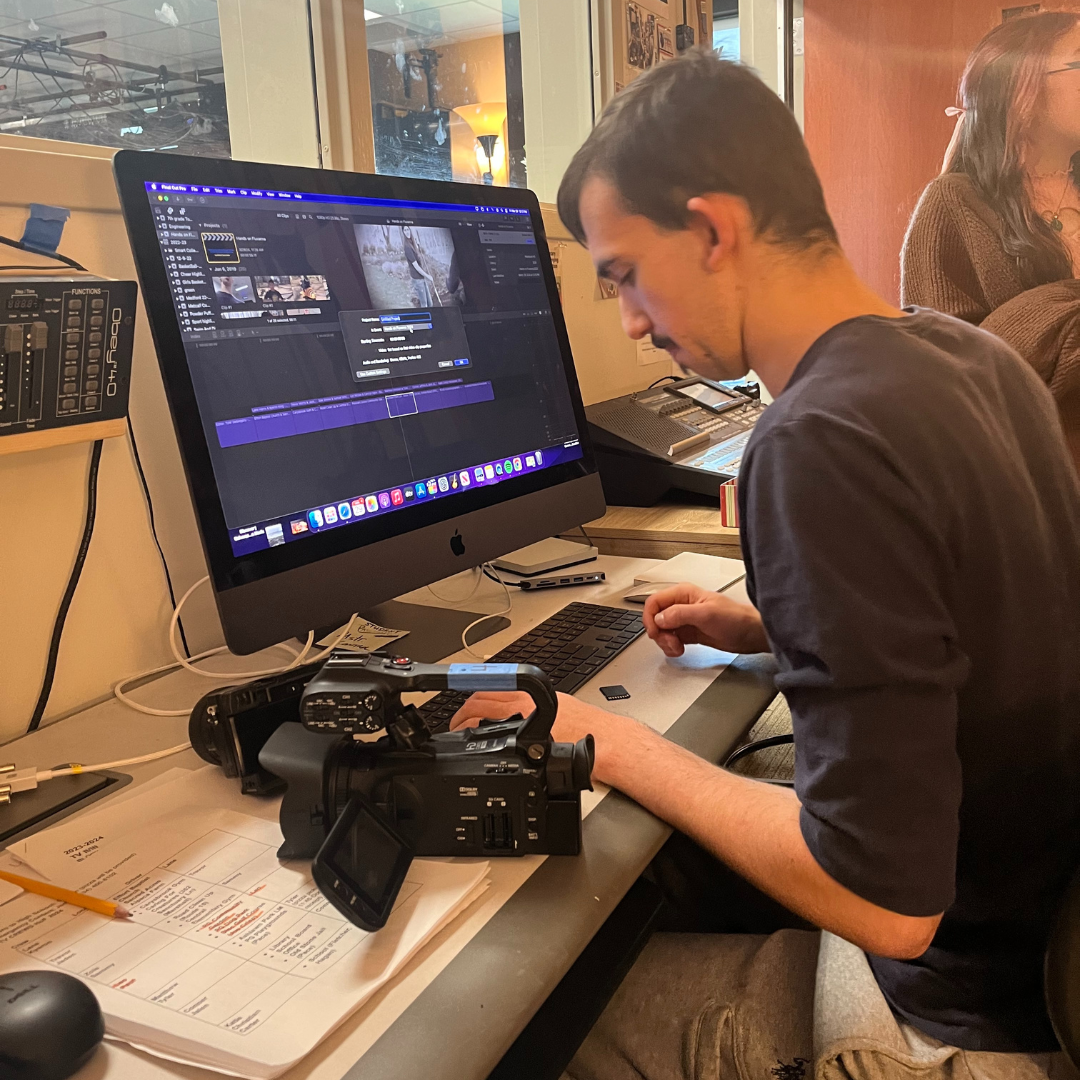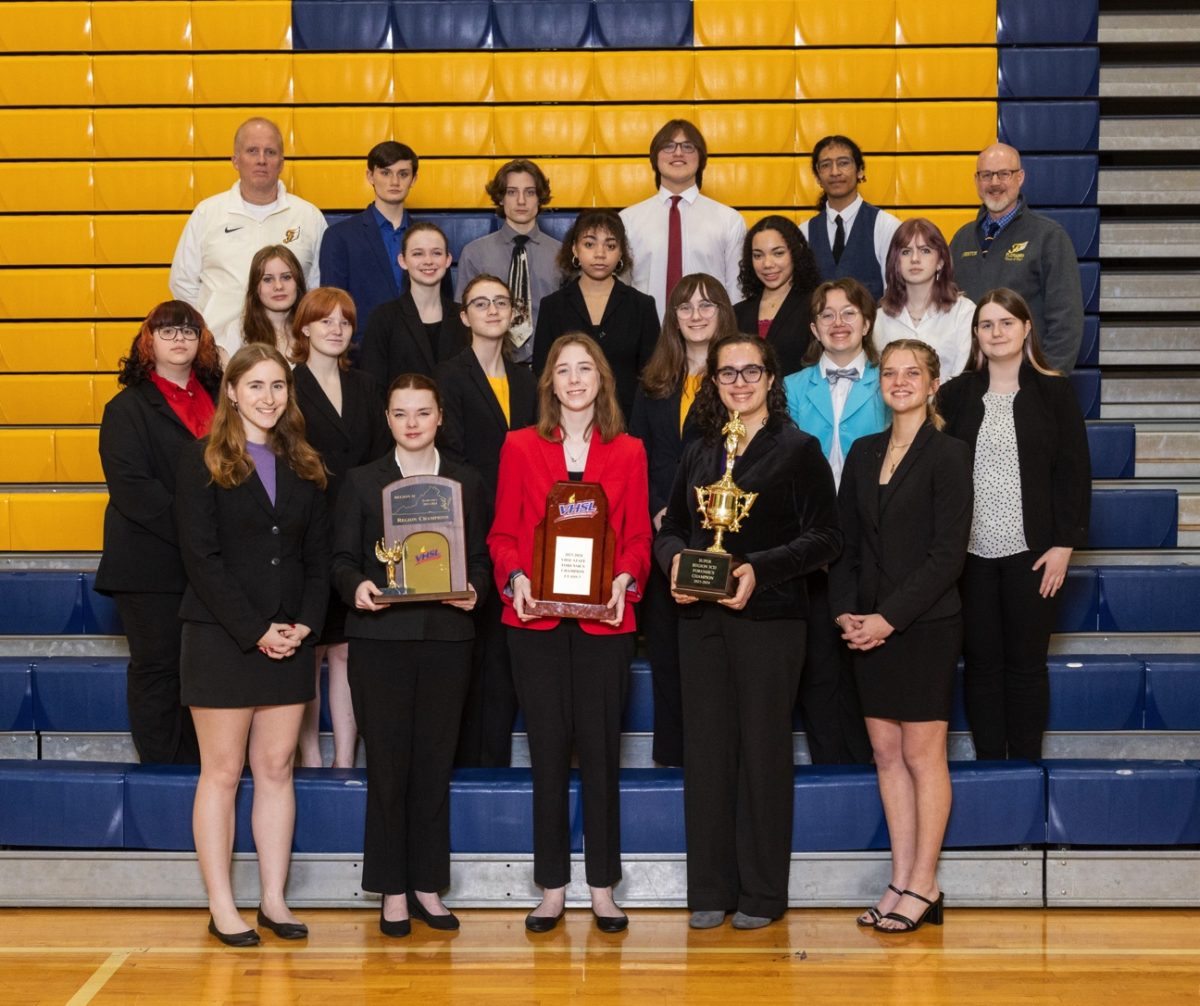Most people today–especially teens–can’t imagine life without working phones or computers. So when FCHS students began realizing around March 4 that they could no longer access school Wi-Fi on their phones and other personal devices while in classrooms, students took notice. The question circulating around the halls quickly became “Is this on purpose? Or an actual technology problem?”
According to FCHS’s Instructional Technology Specialist Kristen Davis, many teachers had expressed their frustrations about how the Wi-Fi has been very slow this year. In a March 7 email to students and parents, FCPS Superintendent Pete Gretz shared the following: “Teachers and students have increasingly been making us aware of disruptions to their ability to complete assignments, instruction and other related work in the classroom.”
FCPS’s Network Administrator Joseph Crisp explained that this slow Wi-Fi is happening because all the networks from personal and school-provided devices are trying to come through one access point. Each classroom has one access point, but with all the networks trying to get through, it cannot handle the burden.
As a result, FCPS Technology decided that the best option was to turn off the Wi-Fi student devices can use in classrooms, but keep the Wi-Fi on in common areas like locker bays, hallways, and the cafeteria. This was a simple solution of changing the network configuration, and did not cost the school any money.
As a result, many students have expressed frustration with the current Wi-Fi settings. “I feel like it’s unnecessary,” said senior Madison Vogt. “If people want to try to get internet, they’ll get it. We should be able to go on our phones during our free time.”
Some teachers, however, feel differently. “There is no WiFi problem. This is the cell phone policy. Students are upset with the WiFi being taken away, but they were never supposed to have it in the first place,” said Math teacher Aime McCall.
Another Math teacher, Jason Davis, agrees with this sentiment. “I do believe that we should provide internet to members of the school, but I also know that students’ phones can often be a distraction. The overuse of phones by students is a challenge to teachers and students’ ability to learn,” he said.
Another concern some students have is that if their phones don’t work, this creates a safety hazard. “If any emergency did happen, how would we be able to text our loved ones or even call 911 if our calls or messages don’t go through?” said junior Nevaeh Ferguson.
Gretz addressed this question in his March 7 email. “In the event of an emergency at school, students can still use their cell phones on their own service network in classrooms. Additionally, all classrooms are equipped with hardline phones to ensure communication is maintained even if cell service is unreliable,” he said.
Students, however, note that even if they turn off Wi-Fi on their cell phones and connect to cellular, there are not many classrooms in the school where connecting to cellular actually works.
As this situation continues into a second week, students are also asking, “Is this a long time thing and is this going to be fixed sometime soon?”
Assistant Principal Chad White noted that he sees the new Wi-Fi settings as a benefit to students, but also admitted that he doesn’t know if this will remain a long-term issue. “If the data shows more good than bad, than this Wi-Fi concept might stick around,” he said.









Griffin Matula • Mar 22, 2024 at 2:51 PM
The Internet is still extremely slow. If they’re going to try to fix it then they need to spend money. I believe that most problems with the wifi don’t even come from the student’s phones. I feel that it’s the school that needs to spend money to make the wifi work, for the benefit of the school.
Olivia Morris • Mar 15, 2024 at 8:43 AM
Most phone services don’t work in the school. I have T-mobile and it hardly ever works but I know that people with Verizon usually have service all day.